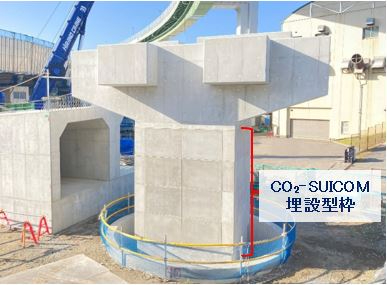JStories ー A microbe discovered in a Japanese hot spring could play a key role in the fight against climate change, according to Tokyo-based startup Utilization of Carbon Dioxide Institute Co. Ltd. (UCDI). Founded in 2015, the institute is developing products ranging from alternative proteins to biofuels using UCDI® hydrogen bacteria — a fast-growing, protein-rich strain first identified in 1976 by University of Tokyo Professor Emeritus Toru Kodama.
The urgency of their work lies in a growing consensus: Cutting emissions alone is no longer enough. To reach a carbon-neutral future, scientists and companies are racing to find ways to recycle the CO2 already in the atmosphere. Among the most promising approaches are hydrogen-oxidizing bacteria, a breakthrough technology showcased at Expo 2025 Osaka Kansai.
These microbes absorb and fix CO2 as they oxidize hydrogen, converting it into organic matter that can be used to produce protein, ethanol, or raw materials for biodegradable plastics. Found in soil, oceans and hot springs, hydrogen bacteria were first identified in the 1950s. But in recent years they have reemerged as one of the most promising biological tools for carbon reduction.

Unlike other known strains, UCDI® grows with exceptional speed. In theory, 1 gram of the bacterium can multiply into 16 tons of biomass within 24 hours. That rapid growth translates into strong economic efficiency. The strain also thrives at 52 degrees Celsius — higher than most bacteria — reducing contamination risks from other microbes. Once dried, its biomass contains 83.8% crude protein, making it a strong candidate as an alternative animal protein.


For institute President Hideaki Yukawa — a former student of professor Kodama — the project is deeply personal. “I wanted to apply the microbe professor Kodama discovered in a hot spring in Izu and bring it into practical use,” he said. “Because its rapid growth also meant strong self-regulation, it took 10 years of research before we could finally make it viable.”
The institute is now working on applications including protein-rich feed for aquaculture and livestock, biodegradable plastics, and fuels. To push toward commercialization, it has partnered with major Japanese firms such as Cosmo Energy Holdings, one of the country’s leading oil and energy companies, and construction giant Obayashi.
But one obstacle looms large: the cost of hydrogen.
“If hydrogen prices fall, commercialization could accelerate dramatically,” Yukawa said. “At the same time, for things like protein powders or cosmetics, the fact that they’re produced without chemicals is itself a value. For environmentally conscious consumers, there will be demand even at a higher price.”
Yukawa studied agricultural science at the University of Tokyo, pursued biochemical research at Mitsubishi Chemical, helped establish the bio-research division of the Research Institute of Innovative Technology for the Earth (RITE), and founded the institute in 2015.

The potential applications, he believes, span industries. The International Air Transport Association has pledged to achieve carbon neutrality for global airlines by 2050, with sustainable aviation fuel seen as a cornerstone of that goal. Bio-based fuel derived from hydrogen bacteria could help meet the demand.

“In Europe, where the shift away from petroleum is especially strong, there are many fields where our products can contribute,” Yukawa said. “We intend to build partnerships not only in Japan but also with overseas companies. In the near future, I believe manufacturing with microorganisms will become a core technology of an environmentally conscious society.”
Translated by Anita De Michele | JStories
Edited by Mark Goldsmith
Top photo: Envato
For inquiries regarding this article, please contact jstories@pacificbridge.jp
***
Click here for the Japanese version of the article















![[Interview] When digital and physical worlds meet](https://storage.googleapis.com/jstories-cms.appspot.com/images/1747974430456unnamed-2_smallthumbnail.png)

![[Interview] How Japanese musician Grover turned his passion of ‘sound’ into a health-tech startup](https://storage.googleapis.com/jstories-cms.appspot.com/images/1746181078493R7__1407_smallthumbnail.jpg)






